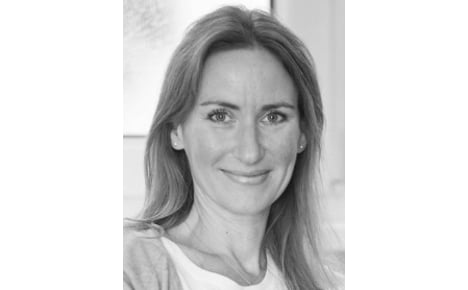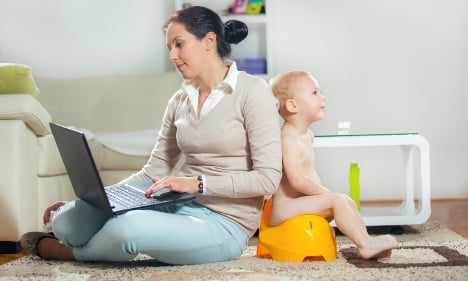How did you come up with this business idea?
For me, becoming a mother was a time of profound change. Despite the level of success I achieved in my corporate career before having children (which included Saatchi & Saatchi in London, and Head of Communication & Branding across North Asia for a major international corporation in Beijing), after a while of being a stay-at-home mum consumed by the gruelling everyday demands of motherhood, I began to question my skills and abilities.
Whilst work was still an important part of my identity after having children, my priorities changed and my ambitions and definition of success changed with it. Most of all I wanted the freedom and flexibility to fit my work around the needs of my family.
A few months after my first son was born, I set up Mr. Barnaby, a community for English-speaking parents with young children in Berlin. It was the opportunity for me to build a social network of like-minded people and have something of my own to focus on.
Over time as the community grew I slowly began to regain my sense of self and the value I bring and it was this, along with my desire to do the work I wanted to do on my own terms for the sake of me and my family, that led me to leaving the corporate world and following my dream to found my own business.
Through WorkSmart I hope to reach out to other women like me who are looking to do things differently. My aim is to give them the support and encouragement they need to reconnect to themselves and their potential after having children, to become bigger and bolder and unstoppable in their pursuit of finding a work role they love and successfully combine it with raising a family.
What were the initial challenges? How did you overcome them?
Having the stamina and self belief to constantly pick yourself up. There's no one patting you on the back or giving you bonuses when you are running your own show – it's just you.

Getting my brand out there on a limited budget has been tough. Social media has been my saviour – it’s inexpensive and a very effective way of reaching my target audience.
How has the journey been so far?
For me it’s been an amazing journey of growth. I have learnt more over the past year running my own business than the 15 years I spent in the corporate world. Hands on experience is priceless.
I’m excited about continuing my journey in 2015. I’ve just launched a new group called MumsLikeUs and in February I’m starting a six-week course called Ready, Steady, Launch. It’s a course for women who have a great business idea, but are not sure what to do next.
How has becoming an entrepreneur changed you, personally?
Helping mums like me realise their ambitions – to use their skills and experience to do work they love whilst creating the life they envision for themselves and their families – has given me an immense sense of reward and fulfilment.
I’ve been lucky enough to find the best of both worlds – work I love and a rewarding family life – and now I want to help other mums do the same, and together build a better future for working mothers.
Any other personal reflections or message to budding entrepreneurs?
All you need to do is begin, it doesn't have to be perfect. With one small step everyday, and lots of passion, persistence and determination, your dreams will turn into reality.
And once you’re on your way, remember you can’t do it alone. Ask for help, and advice. People love to give both and it can have immeasurable effects on your work and life.
I think women in particular tend to forget to do this while trying to do and have it all.
A new perspective or an extra set of hands does not make you less of an independent business person, it makes you a much better one.



 Please whitelist us to continue reading.
Please whitelist us to continue reading.
Member comments